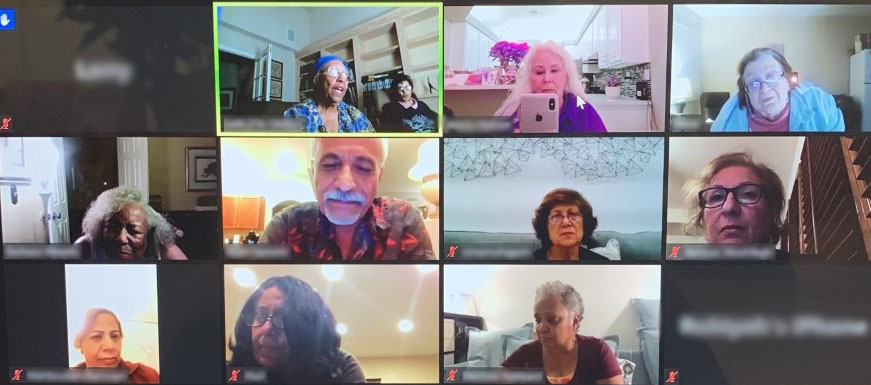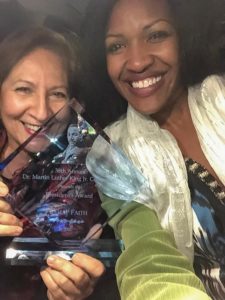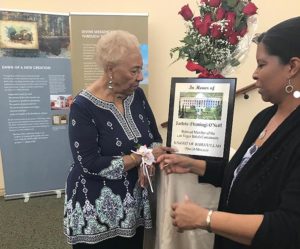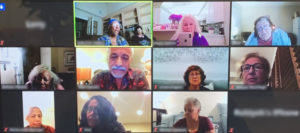



By Francisco Rendon
The Baha’i communities of Everett, Washington, and Las Vegas, Nevada, have each launched a number of initiatives to promote discourse on race and racism in the United States.
The initiatives vary in size and scope, and follow recent guidance from the Universal House of Justice, the global governing council of the Baha’i Faith, expressing the hope that the American people “will grasp the possibilities of this moment to create a consequential reform of the social order that will free it from the pernicious effects of racial prejudice and will hasten the attainment of a just, diverse, and united society that can increasingly manifest the oneness of the human family.”
Expanding the conversation In Everett
After the killings of George Floyd, Breonna Taylor and Ahmaud Arbery in early 2020, race once again came to the fore of national discourse. The Baha’i community of Everett, a blue-collar suburb of Seattle, felt a need to engage. Already in the process of studying related guidance, community members organized monthly “Spiritual Conversations on Race” gatherings.
Beverly Moore of Everett says they aimed to include diverse participants and invited friends, family members and colleagues. But when it turned out to be mostly Baha’is attending, they put the gatherings on hold so more thought could be put into what form they should take.
In the months that followed, Moore was part of a group of eight local Baha’is — including four members of the Spiritual Assembly of Everett, the Baha’i community’s local governing council — who took the “Anti-Black Racism in the U.S.” course from the Wilmette Institute, an online educational institution that draws on Baha’i principles.
The course deals with some of the most serious manifestations of anti-Black racism in North America: colonialism and slavery; the prison/industrial complex; policing issues and Black Lives Matter; violence against Black women; and other themes. As part of the course, the Everett group joined in both regular national calls and small-group conversations.
“It was the best thing since sliced bread,” Moore said. “The knowledge, the camaraderie and conversations … really helped cement that not only were we learning things, but [also were thinking] about how we could take this information and reach out to the wider community.”
After the course, attendees relaunched the “Spiritual Conversations on Race” meetings. These virtual meetings include devotions, a speaker, video presentations and a period for open consultation. Attendance has expanded over several months, with 27 people participating in February.
And the discourse on race is having an impact not only on the 50-strong Baha’i community, but is beginning to make inroads in this locality of 100,000. Moore says the richness of conversation and new insights gained from this discourse have inspired the formation of new prayer gatherings. It also has affected her own approach to the Baha’i service activities she’s involved in.
Todd Kutches, who took the Anti-Black Racism course and is helping to organize the monthly gathering, says it is still mostly attended by white people, but they are drawing on encouragement from the Wilmette Institute study. Conversations that promote awareness about racial dynamics in the United States really do need to be held with whoever participates, they have agreed.
“It does become kind of a different conversation without that [racial] balance,” Kutches says, “but we are focusing on this idea that we all have something more to learn [about race relations].”
“We are just starting, honestly, but we are committed to doing this every month,” he adds. “It does reach people in the greater community, but it has created this incredible unity within our community. It has really roused our passion and created a strong sense of identity. We really feel ‘this is why we are Baha’is.’”
Moore, a middle school assistant principal, devotes much of her time these days to local and national conversations on the theme of race. She also participates in meetings with friends in Los Angeles and Nashville, many of whom she connected with at the ARISE Pupil Of The Eye conference in February 2020 — which used Baha’i teachings as a lens to focus on contributions by people of African descent in helping unify America and the world.
She feels fulfilled by the work and hopes more people will learn that love must be central to these conversations.
“I find that hope glows and it glimmers and is fed into a flame when you realize what’s at the base of all this. I think when people are real with one another, you can agree with each other but can also [learn how better] to work and grow and love together,” she says.
“It takes a lot of courage to be vulnerable and put yourself out there, no matter what culture you come from,” Moore says. As you get to know somebody as a friend, those vulnerabilities come out, and “that’s when you can let them know that you love them still, even more so,” she says.


Educating the community in Las Vegas
The Spiritual Assembly of the Baha’is of Las Vegas has been helping community members to educate themselves on the issue of race unity since receiving guidance from the National Spiritual Assembly on the subject in 2017. Over the years the community has held regular studies of guidance and writings on the theme, has organized special activities for Black History Month, and has participated in the annual Dr. Martin Luther King, Jr. parade.
As the national discourse on race intensified in June and July, the community redoubled its efforts, and formed a Race Amity Task Force.
Its programs have included screenings of films like 13th, Black Like Me, Birth of a Nation and 12 Years a Slave. The community also purchased 15-second advertisements on local public radio, identifying racial prejudice as America’s most challenging issue and inviting participation in monthly gatherings.
These monthly gatherings on the subject of race vary in format, but may include video clips, readings, prayers, discussion and “homework.” They began in October and are drawing attendance of 20-40 per month.
“We hope these gatherings will not only enlighten the community but uplift and promote a consciousness that will strengthen their resolve and action towards the fulfillment of the mission and vision of Baha’u’llah, ‘Abdu’l-Baha and Shoghi Effendi,” says Barbara Weems, a member of the Race Amity Task Force’s Education Committee.


Weems also organized a series of daily emails during Black History Month that profiled unique Black American figures from history. She says she wanted to go beyond those more commonly profiled and go deeper into the history of Black people in the U.S., “because if you are familiar with a people, then you are more likely to work on their behalf.”
Another important aspect of the Task Force’s work has been educating immigrants in the Baha’i community on race dynamics in America.
Mojgan Moazez, a member of the Las Vegas Spiritual Assembly, says when some Iranian-American Baha’is were approached on this matter, they would say, “I do not need this because I am not racist.” But without knowing the American context it is difficult to understand what racism means woi current events.
“Being of Persian descent, I have never faced these racial issues,” Moazez says. “This is totally different from what I faced in Iran … but when you watch these movies and participate in these conversations, you start to understand what Black people in the U.S. have gone through is totally different from anything else. I understood that after watching the movie 13th and it broke my heart. But it made me more motivated to give the message of Baha’u’llah to my friends.”
Weems says one important lesson concerns awareness of microaggressions, which requires an understanding of the context and nuance of how people interact. Microaggressions – small actions or words that can be interpreted as discriminatory – are frequently unintentional but are hurtful nonetheless, Weems says.


“I’m sure people who say [subtly hurtful things] don’t mean to be hurtful, but any microaggression is burdensome to a Black person. We [Black people when hearing such a remark] have to stop and listen to how something was said, and we have to determine if whoever said it is a friendly interloper. And [sometimes] we have to figure out if, even small choices in language, are being used as a racial slur. We have to go back into our memory and figure it out. Then, if we have heard that word used as a slur before, the pain we felt when we first heard it is revisited in our emotional system and it is a reminder that we belong to the “other” group. This is always burdensome.”
Weems says the Spiritual Assembly’s support of these initiatives, and particularly its willingness to acknowledge systemic racism in the United States, have been helpful.
Moazez points out that Shoghi Effendi, who guided the worldwide Baha’i community 1921–1957, called racism America’s most vital and challenging issue, “so we have to be aware of this and know how to deal with it.” The Faith also teaches that this country is destined to play a leading role in establishing world peace. “What our Local Spiritual Assembly is doing is really trying to get our community ready for this time,” Moazez says.


![]()
![]()
Whether you are exploring the Bahá'í Faith or looking to become an active member, there are various ways you can connect with our community.
Please ensure that all the Required Fields* are completed before submitting.